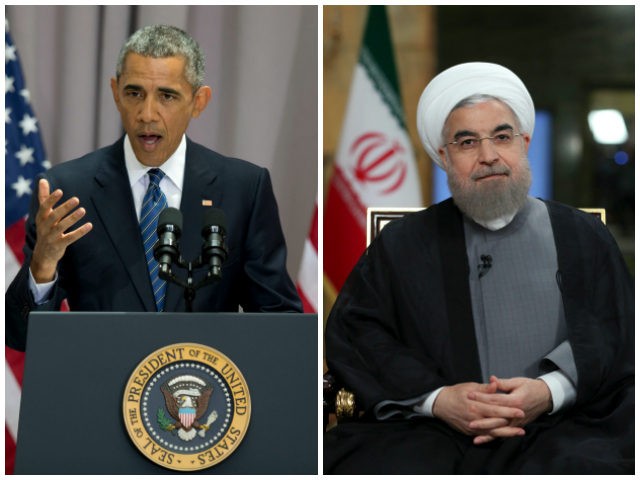TEL AVIV – Israel has maintained a top-secret but extremely close relationship for nearly a quarter of a century with the United Arab Emirates, the New Yorker magazine reported on Monday, adding that the two nations attempted to deter then-president Barack Obama from going through with the Iranian nuclear deal.
The ties, which include intelligence cooperation, began with then-prime minister Yitzhak Rabin and the crown prince of Abu Dhabi in the mid-1990s and continued through the Obama years, with a joint effort to thwart the nuclear deal.
“Obama set out to bring Jews and Arabs closer together through peace,” former Israeli ambassador to the U.S. Michael Oren told the New Yorker. “He succeeded through common opposition to his Iran policy.”
“The secret relationship between Israel and the UAE can be traced back to a series of meetings in a nondescript office in Washington, DC after the signing of the Oslo Accords,” the article said.
The clandestine ties began when the UAE sought to buy F-16 fighter aircraft from the U.S., but American and Emirati officials were concerned that Israel would protest the arms sale, the article said. However, rather than scrap the deal, Jeremy Issacharoff — today Israel’s ambassador to Germany who back then was working out of the DC embassy — requested to talk the matter over directly with the Emiratis, in order to find out how they intended to use the American aircraft.
The ensuing meeting in 1994, the article said, “wasn’t a one-off encounter. Israeli and Emirati officials didn’t agree on the Palestinian issue, but they shared a perspective on the emerging Iranian threat, which was becoming a bigger priority for leaders in both countries.”
Rabin told the U.S. that he would not object to the F-16 sale.
“Former U.S. officials said that the Israeli decision built a sense of trust between Israel and the U.A.E.,” the New Yorker said, citing U.S officials.
A government-backed think-tank in Abu Dhabi called the Emirates Center for Strategic Studies and Research then “became a conduit for contacts with Israel,” the magazine stated.
Mohammed bin Zayed Al Nahyan, also known as MBZ, gave his blessing and delegations of influential American Jews began to visit Abu Dhabi to meet with Emirati officials.
“I can envision us being in the trenches with Israel fighting against Iran,” a former American official recalled MBZ saying at one of those meetings to the astonishment of the Jewish leaders in the room.
“They assumed that he was telling them what he thought they wanted to hear, but the official said that for Emirati leaders like MBZ, ‘It’s the old adage: the enemy of my enemy is my friend,’” according to the magazine.
The relationship later led to a joint appeal to Obama to take the Iranian threat more seriously. In 2009, Israel’s then-ambassador to the U.S. Sallai Meridor teamed up with a senior Emirati official to appeal to then-Obama adviser Dennis Ross. The joint effort surprised Obama, but in the end did not deter him from pursuing a deal with the Islamic Republic.
In 2010, the relationship suffered a temporary setback over an alleged Mossad operation in Dubai that assassinated Hamas arms dealer Mahmoud al-Mabhouh. The Emiratis asked Israel to compensate by selling them armed drones, but Jerusalem refused in case the move would antagonize the U.S., which was against the sale of armed UAVs to the UAE, Arab and American officials told the magazine.
Toward the end of Obama’s second term, U.S. intelligence agencies unearthed phone calls and a possible secret meeting between senior Emirati leaders and Netanyahu in Cyprus.

COMMENTS
Please let us know if you're having issues with commenting.